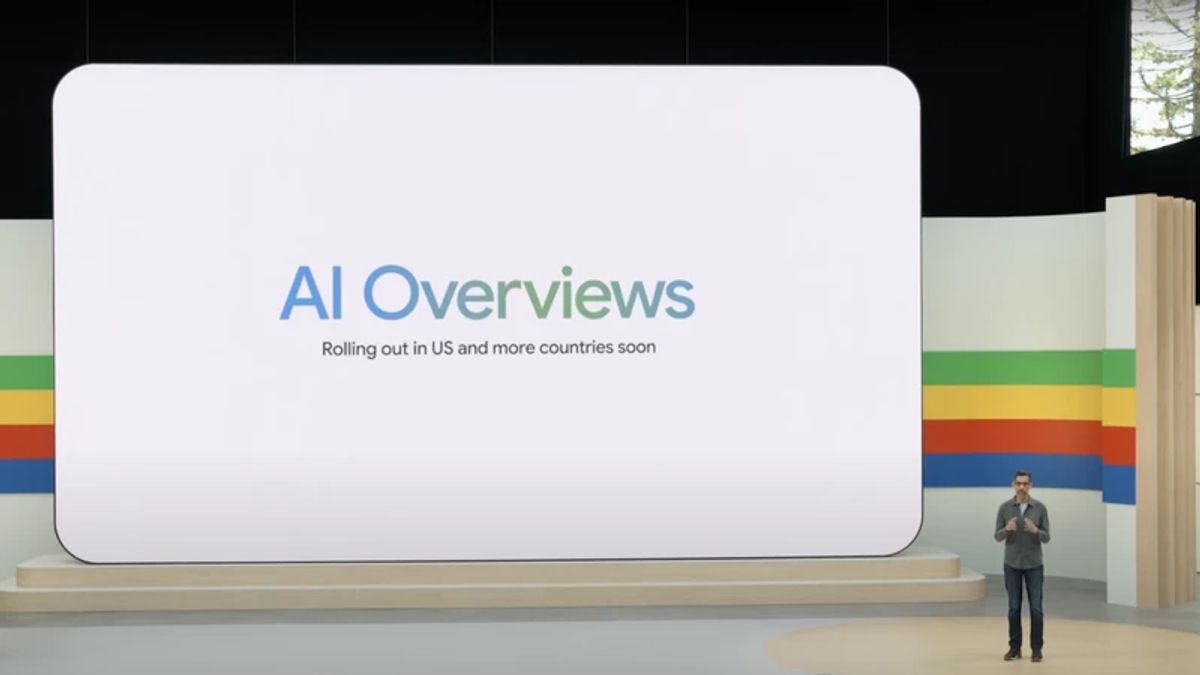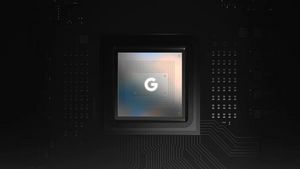JAKARTA - Social media is busy with examples of new AI Overview products from Google that provide strange suggestions, ranging from telling users to put glue in their pizza to suggesting eating stones. This messy launch made Google race to manually disable AI Overviews for certain searches in line with the number of memes posted, explaining why users saw many of them missing shortly after being posted on social media.
This is a strange situation, given Google has been testing AI Overviews for a year - this feature launched in beta in May 2023 as Search Creative Experience - and Google CEO Sundar Pichai said the company had served more than a billion queries during that time.
However, Pichai also said that Google had lowered the cost of providing an AI answer of up to 80 percent over the same time, "driven by hardware, engineering, and technical breakthroughs." It seems that this type of optimism may have been done too early, before the technology is ready.
"The company, formerly known to be at the forefront and delivering high-quality goods, is now known for its low-quality meme output," said an AI founder who wants to remain anonymous to The Verge.
Google continues to say that its AI Overview products mostly generate "high-quality information" to users. "Many of the examples we see are unusual queries, and we're also looking at examples that are made up or that we can't repeat," said Google spokeswoman Meghankel.
ung juga mengonfirmasi bahwa perusahaan " mengambil tindakan cepat" untuk menghapus AI Overviews pada queries tertentu " mana sesuai di bawah kebijakan konten kami, dan menggunakan contoh-sampai ini untuk mengembangkan perbaikan lebih luas pada sistem kami, beberapa di antaranya sudah mulai diluncurkan."
Gary Marcus, an AI expert and professor of neuroscience emeritus at the University of New York, said that many AI companies "sell dreams" that this technology will increase from 80 percent true to 100 percent. "Achieving 80 percent early is relatively easy because it involves approaching large amounts of human data," Marcus said. "But the last 20 percent is very challenging." In fact, Marcus thinks that the last 20 percent may be the most difficult of all.
"You really need to do some reasoning to decide: does this make sense? Does this source make sense? You have to do things like human fact-checkers do, which may require artificial general intelligence," said Marcus.
Marcus and chief AI Meta Yann LeCun both agree that big language models supporting today's AI systems like Gemini from Google and OpenAI's GPT-4 won't create AGI.
SEE ALSO:
Look, this is a difficult position for Google. Bing launched AI first with the famous Satya Nadella quote "we make them dance", OpenAI is reportedly working on their own search engine, a new AI search startup already worth $1 billion, and a younger generation of users who only want the best experience of turning to TikTok.
The company is clearly feeling pressure to compete, and that pressure is what makes the AI launch a mess. Marcus pointed out that in 2022, Meta released an AI system called Galactica that had to be lowered shortly after its launch because, among other things, ordering people to eat glasses.
Google has big plans for AI Overviews - a feature like the current one is just a small piece of what the company announced last week. Multistep reasoning for complex queries, the ability to generate AI-regulated outcome pages, video searches on Google Lens - there's a lot of ambition here. But right now, the company's reputation depends on just getting the right basics, and it doesn't look good.
"These [Models] are constitutionally incapable of conducting hearings on their own work, and that's what bit the industry behind," Marcus said.
The English, Chinese, Japanese, Arabic, and French versions are automatically generated by the AI. So there may still be inaccuracies in translating, please always see Indonesian as our main language. (system supported by DigitalSiber.id)


















